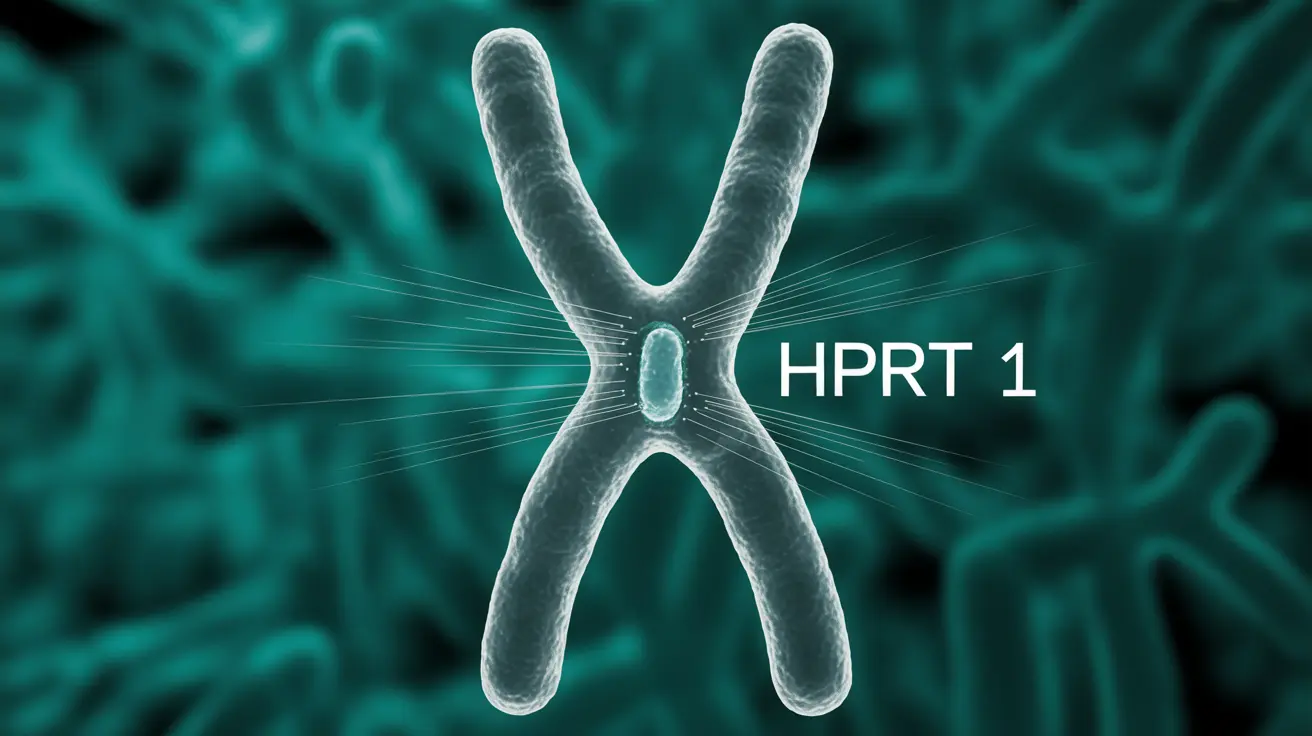Lesch-Nyhan syndrome is a rare genetic disorder that primarily affects males and causes severe neurological and behavioral symptoms. This inherited condition disrupts the body's ability to process purines, important compounds found in all cells, leading to a range of challenging symptoms that typically begin in early childhood.
This comprehensive guide explores the causes, symptoms, diagnosis, and available treatments for Lesch-Nyhan syndrome, helping families and caregivers better understand this complex condition.
Genetic Basis and Inheritance Pattern
Lesch-Nyhan syndrome occurs due to mutations in the HPRT1 gene, located on the X chromosome. This gene is responsible for producing an enzyme called hypoxanthine-guanine phosphoribosyltransferase (HPRT), which plays a crucial role in recycling purines in the body.
Because the condition is X-linked recessive, it primarily affects males who inherit the mutated gene from their mothers. Females typically don't develop the full syndrome because they have a second, functioning X chromosome, though they can be carriers of the condition.
Clinical Manifestations and Early Signs
Physical Symptoms
The first signs of Lesch-Nyhan syndrome typically appear during infancy or early childhood. Common physical manifestations include:
- Delayed motor development
- Muscle tension and involuntary movements
- Poor muscle control
- Gout-like symptoms
- Kidney problems including stones
Behavioral and Neurological Symptoms
One of the most distinctive features of Lesch-Nyhan syndrome is the development of severe behavioral symptoms, including:
- Self-injurious behaviors, particularly lip and finger biting
- Involuntary writhing movements (dystonia)
- Spasticity
- Cognitive challenges
- Speech difficulties
Diagnostic Approach
Diagnosing Lesch-Nyhan syndrome requires a comprehensive medical evaluation that typically includes:
- Genetic testing to identify HPRT1 gene mutations
- Blood and urine tests to measure uric acid levels
- Assessment of HPRT enzyme activity
- Clinical evaluation of symptoms and developmental history
Treatment and Management Strategies
Medical Interventions
While there is no cure for Lesch-Nyhan syndrome, various treatments can help manage symptoms:
- Medications to control uric acid levels
- Anti-spasticity medications
- Pain management approaches
- Physical therapy and occupational therapy
- Behavioral interventions
Managing Self-Injurious Behavior
Preventing and controlling self-injurious behavior often requires a multi-faceted approach:
- Protective devices and restraints when necessary
- Behavioral modification techniques
- Environmental modifications
- Medication management
- Regular psychiatric support
Support and Long-term Care
Managing Lesch-Nyhan syndrome requires ongoing support and comprehensive care coordination among various healthcare providers, including:
- Neurologists
- Behavioral specialists
- Physical therapists
- Occupational therapists
- Mental health professionals
- Social workers
Frequently Asked Questions
What causes Lesch-Nyhan syndrome and how is it inherited? Lesch-Nyhan syndrome is caused by mutations in the HPRT1 gene on the X chromosome. It follows an X-linked recessive inheritance pattern, primarily affecting males who inherit the mutated gene from their mother, who is typically a carrier.
What are the common symptoms and signs of Lesch-Nyhan syndrome in affected children? Common symptoms include delayed development, poor muscle control, involuntary movements, self-injurious behaviors (particularly lip and finger biting), high uric acid levels, and cognitive challenges. These symptoms typically begin appearing in early childhood.
How is Lesch-Nyhan syndrome diagnosed through tests and genetic analysis? Diagnosis involves genetic testing to identify HPRT1 gene mutations, blood and urine tests to measure uric acid levels, enzyme activity testing, and comprehensive clinical evaluation of symptoms and developmental history.
What treatment options are available to manage the symptoms of Lesch-Nyhan syndrome? Treatment options include medications to control uric acid levels, anti-spasticity drugs, physical and occupational therapy, behavioral interventions, and comprehensive medical care. While there is no cure, these interventions help manage symptoms and improve quality of life.
How can self-injurious behavior in Lesch-Nyhan syndrome be prevented or controlled? Self-injurious behavior is managed through a combination of protective devices, behavioral modification techniques, environmental adaptations, medication management, and regular psychiatric support. A comprehensive treatment plan typically involves multiple healthcare professionals working together.




